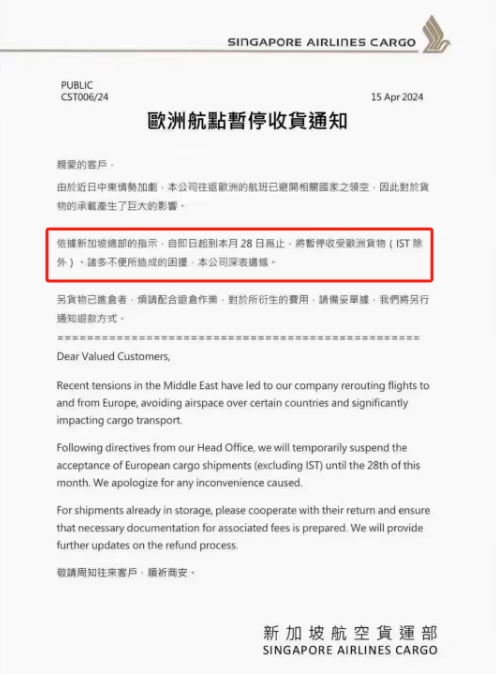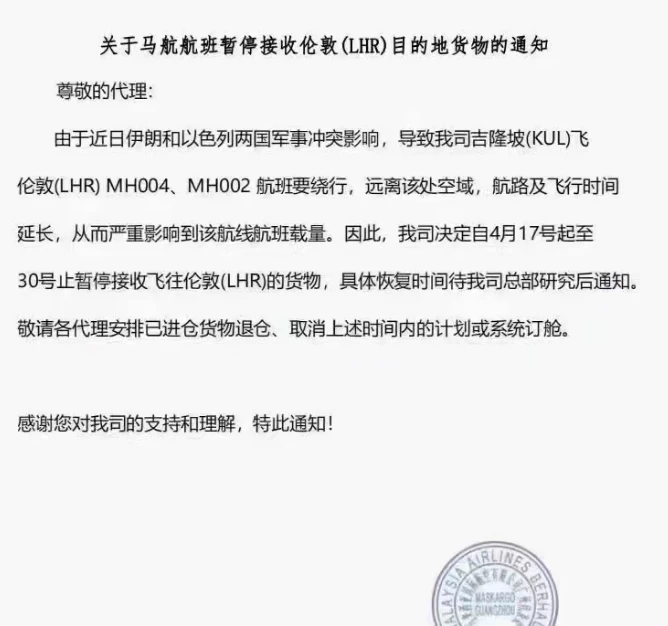Iran, Israel escalate tensions, Malaysia Airlines, Singapore Airlines: stop accepting European cargo from 17th
Recently, the escalation of tensions between Iran and Israel has sparked widespread global concern. In the early morning hours of April 14, local time, Iran's Islamic Revolutionary Guard Corps (IRGC) began launching large-scale missile and drone strikes against Israeli targets. On April 15, Israel Defense Forces (IDF) Chief of General Staff Halevi said that Iran's missile and drone strikes against Israel were "unprecedented" and would be "met with a response". 
 This is a picture taken in the early morning of April 14 over Tel Aviv, Israel, when the Israeli air defense system started intercepting. Xinhua News Agency (Photo by Tomer Neuberg/Gini Photo Agency)
This is a picture taken in the early morning of April 14 over Tel Aviv, Israel, when the Israeli air defense system started intercepting. Xinhua News Agency (Photo by Tomer Neuberg/Gini Photo Agency)
The conflict between Iran and Israel has had a significant impact on trade flows between Europe and the Middle East. This conflict has led to adjustments in transportation by airlines. As a result of regional tensions, Malaysia Airlines and Singapore Airlines decided to suspend acceptance of European cargo in order to ensure the safety and smooth operation of their flights.  Singapore Airlines has announced that they will suspend acceptance of cargo in the European region
Singapore Airlines has announced that they will suspend acceptance of cargo in the European region

Malaysia Airlines has announced that they will stop accepting cargo in Europe.
While this decision may have some impact on the airline's operations and revenues, safety is always their primary concern. These are necessary actions for both airlines and their passengers under current situation. Both airlines also said they would closely monitor the situation and would adjust their flight plans accordingly.
This incident once again highlights the impact of geopolitical tensions on global trade and transportation. Under such circumstances, Governments and airlines alike need to act more prudently and responsibly to ensure security and safeguard the unimpeded flow of global trade. At the same time, it also reminds us that, in the era of globalization, conflicts in any region may have far-reaching effects on the global economy. We therefore need to strengthen international cooperation and exchanges to jointly address global challenges. Sunny Worldwide Logistics always cares your cargo.